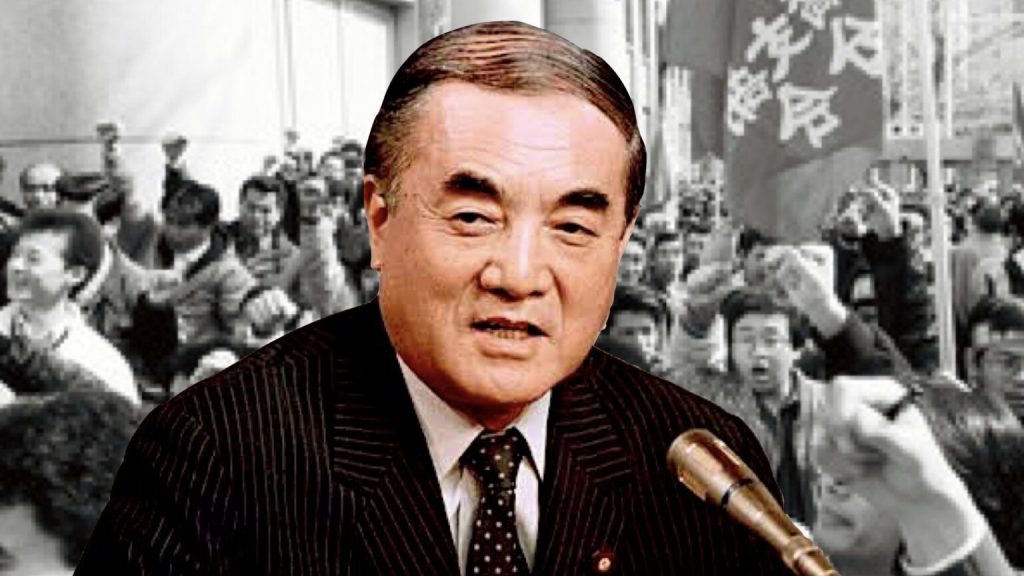Tozen, and our President Okunuki Hifumi, have been mentioned in the following article by Mieko Takenobu about the difficulties that Filipino domestic workers have.
竹信三恵子氏のフィリピン人家事労働者が抱える問題についての記事の中で、東ゼン労組と執行委員長の奥貫妃文についても触れていただきました。
Tozen, and our President Okunuki Hifumi, have been mentioned in the following article by Mieko Takenobu about the difficulties that Filipino domestic workers have.
竹信三恵子氏のフィリピン人家事労働者が抱える問題についての記事の中で、東ゼン労組と執行委員長の奥貫妃文についても触れていただきました。

SNA (Tokyo) — “Japan is safer than other countries; the Japanese are kind; the streets are clean; and it’s easy to live here.” I hear foreigners say these things. But I also hear it from Japanese who have never lived abroad. The mainstream media’s Nippon Sugoi! campaign is working, perhaps, but it’s not far off from the nation’s general reputation. But read on: The current reality may blow your image of my country to smithereens. Can such a thing be happening in Japan in 2021?

SNA (Tokyo) — A Japanese court overturned a welfare reduction for the first time ever on February 22, 2021. The Osaka District Court ruled against the government’s 2013 public assistance reduction of ¥67 billion (US$632 million), marking the first court win for the Inochi no Toride litigation campaign, involving more than 1,000 plaintiffs in 29 prefectures around Japan.
Attorney Tetsuro Kokubo, deputy head of the defense team, said, “This is the first time in my long career as a lawyer that I cried when I heard the verdict.” The comment poignantly conveys the challenges of fighting state power.

SNA (Tokyo) — When did poverty become normal? Conventional wisdom had it that poverty didn’t exist in Japan; that the miracle recovery during the country’s rapid growth period had given birth to a middle class of 100 million people.

SNA (Tokyo) — Prime Minister Yasuhiro Nakasone died this past November 29. During his tenure as prime minister from 1982 to 1987, he had deepened Japan’s subordination to the US hegemon through his Ron-Yasu Bromance with President Ronald Reagan. But to one middle and high schooler in the 1980s, he seemed to be the first prime minister to hold his own in friendly talks with the United States, almost as an equal.
It’s midnight at the convenience store I often patronize near my home in Tokyo’s central Shinjuku district. The store’s open all day and night, 365 days a year.
There is one man I’ve seen quite a bit of lately — behind the counter, stocking shelves, carrying heavy boxes, cleaning, cooking food, ringing up purchases, barristering, giving out raffle tickets, and always using polite, respectful Japanese, from irasshaimase (welcome) to arigato gozaimasu (thank you very much).
Once, he ran down the street after my husband, who had just left the store. It wasn’t because this customer had shoplifted. God forbid. No, his addled brain had simply forgotten to collect the change (about ¥40), and this superclerk thought it right to leave his post and bolt down the street to hand it to him.
Full disclosure: I am the president of Tozen Union. Last October we joined the Japanese Trade Union Federation, known as Rengo.
It is therefore with a heavy heart that this month I lambaste Rengo’s recent decision to agree to a policy I believe will endanger the health and lives of workers in Japan. Criticizing our own tribe is never easy and leaves a sour taste, but if we cannot criticize ourselves, we have no right to criticize others.
Those who read my column know well that one of Japan’s most dire labor problems is the practice of working from early morning until late at night. Long hours can and do kill.
レイバーペインズを読んでくださっている皆さんなら、日本の労働問題の最たるものが「長時間労働」、「過労死(自殺)」であることは重々承知だろう。にもかかわらず、ことあるごとに、労働法は時代遅れだとして、労働法の規制緩和をどんどん推し進めてきたのが他ならぬ現在の安倍政権なのだが、その安倍政権がなぜか去年から、残業時間の「上限」を法律で定めるべきだと主張し始めた。
このことは、政府がこれまでのバリバリの「規制緩和」から、「規制強化」路線へ180度方針転換したのか、とずいぶん騒がれたが、疑い深い私は、これには裏があるにちがいない、という気持ちが拭い去れなかった(このことは、2016年12月25日のLabor Painsでも述べている)。安倍首相は現在の財界トップである榊原定征(さかきばら さだゆき)経団連会長と親密な関係であり、自らの外遊にも連れていき、世界各国で日本企業を首相みずからが“トップセールス”するのだと自慢げに言っている。安倍首相が、自分の大切な「お友達」が多い経済界の締め付けを強めるようなことを本気でやるとはとても思えなかったのだ。
The Tokyo District Court handed down its verdict in the Fujibi case last February, with the Tokyo High Court upholding it in July. On both occasions, I couldn’t believe my ears. The courts ruled that labor union Zenrokyo Zenkoku Ippan Tokyo Rodo Kumiai (Tokyo Roso) had committed defamation and damaged the creditworthiness of Fujibi, a medium-size artwork printing company.
Articles 1.2 and 8 of Trade Union Law explicitly exempt labor unions from civil and criminal liability when conducting legitimate labor union activities. This has been broadly interpreted thus far to give unions extraordinary leeway to dish out harsh criticism of their employers, whereas normally such public criticism would constitute illegal (possibly criminal) defamation (meiyo kison) or obstruction of business (gyōmu bōgai). Consumer boycotts are illegal (possibly criminal), whereas strikes by workers are protected by the Constitution, even if they hurt the business.
So these courts ruled that Tokyo Roso’s actions were not legitimate union activities. What were the actions and what led to these verdicts?
The year 2016 was no walk in the park for workers nationwide. At one extreme, we have Matsuri Takahashi, a 24-year-old worker who felt she had no other choice but to take her life as a result of overwork.
In October, the Ministry of Health, Labor and Welfare released its first ever white paper on karōshi (death from overwork). The fact that the ministry can publish such a paper is a chilling reminder of the cruelty of the country’s workplace environment.